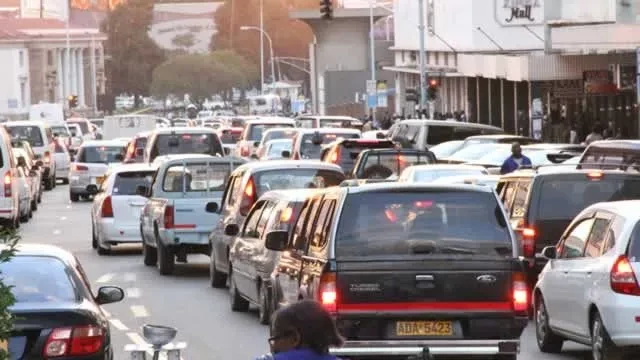
THE sound of screeching wheels, honking car horns and delirious shouting is not foreign in the streets of Glen Norah, an overpopulated neighbourhood south-west of Harare.
Pedestrians and vehicles of all shapes and sizes negotiate their way past the high-density suburb’s potholed, yet busy roads throughout the day and night, making them centres of commotion.
However, on the night of May 25, residents who stay near the junction between Takaruza and Manyika streets heard a cacophony more pronounced than usual.
At one of the houses, a singing crowd congregated, with feminine voices largely heard inside an enclosure while groups of men stood next to a collection of parked vehicles that carried a picture captioned “RIP ANO”.
The assorted multitude had gathered to mourn Anotida Murehwa, an 18-year-old who lost his life behind the steering wheel of a Honda Fit following a traffic mishap.
“Ano had been speeding on his way from a delivery when he side-swiped a kombi (mini-bus) and perhaps in an attempt to flee the scene, he encroached into the oncoming lane where he avoided a head-on collision by veering further right off the road,” the teen’s uncle Edmore Chibaya said as he recounted the horror incident.
“That is when he rammed into a rock and was thrown off the flying vehicle before landing headlong onto the hard surface while the car landed on his legs.”
Eyewitnesses in Glen View, a neighbouring suburb said they watched helplessly as Murehwa bled profusely through the mouth before he breathed his last.
- Thousands flee economic mess
- Disband RBZ: Hanke
- 40 000 enumerators threaten legal action
- Zimbos don't want to burden SA's health system
Keep Reading
His was a short life lost as a result of apparent recklessness on the road.
Recent data from the Zimbabwe National Statistics Agency (ZimStat) shows that a total of 474 deaths and 2 386 injuries were recorded from the 12 588 accidents that occurred during the first quarter of this year.
The troubling statistics are a significant increase from previous years, and it is a trend that is likely to continue largely as a result of reckless driving on the country’s roads.
Last month, seven people died on the spot while four others were seriously injured after an overloaded Honda Fit pirate taxi travelling towards Harare collided with a Volkswagon Toures on the 60-kilometre peg outside Marondera along the Harare-Mutare Highway.
According to ZimStat, illegal public transport operators referred to as “go faster” or “mushikashika”, a vocation that Murehwa had just started out, are at the top of the offenders’ list.
“Ano was not academically gifted and as a mushikashika driver myself, I started to teach him how to drive last year with the hope that this could be an alternative way to fend for himself later in life,” says Chibaya.
At the time of his death, the high school dropout had left his uncle’s wings and secured employment elsewhere. Part of Ano’s wages, according to his distraught uncle, would go to the upkeep of his martenal grandmonther while he was also saving to attain a driver's license.
Like Murehwa, most mushikashika drivers are unlicensed, which means that they do not undergo safety training and as a result they often have little knowledge of road safety rules and regulations.
On countless occasions, the Zimbabwe Republic Police (ZRP) has launched operations against errant drivers, traffic offenders and illegal transport operators but that has fallen short of addressing the problem.
The authorities recently launched a two-week-long blitz on errant drivers code-named Tame the Traffic Jungle.
“This operation has been necessitated by the lawlessness on the roads especially in major cities and towns where some drivers are openly causing chaos and congestion by driving against one-way, oncoming traffic, through red robots and reckless lane violation,” the police said.
Although noble, the move is bound to entrench order only for the period it will subsist as has been the case in the past.
In the face of a chaotic national transport system, commuters still resort to using mushikashika with clampdowns mostly blamed for increasing transport woes.
Efforts by the Transport ministry to introduce a raft of measures including an age limit for public service vehicle drivers as well as mandatory fitting of speed limit devices to try and curb the country’s road carnage have turned out to be futile.
“The rate at which we are losing people due to negligence is alarming,” Transport minister Felix Mhona said recently.
“It is not only about bad roads and potholes that are causing accidents, but motorists need a mindset and culture shift to stop speeding on the roads.”
But, without a formalised transport network as is the case currently, the ascribed solutions are a pie in the sky. This begs the question whether there is a way to incorporate formality in the inevitable pirate taxi operations.
“The way I see it is that our role is important, we are in business with the public and all that is needed is mutual understanding so that we have cordial relations,” Chibaya suggests.
As midnight approaches, a group of mushikashika drivers at Ano’s funeral wake discuss how they should conduct themselves better to minimise road carnage.
“We are not the same, so we can never behave alike but we have to try to stay alive in the quest to feed our families,” shouts one of them disregarding the issue of safety for commuters and other road users.










